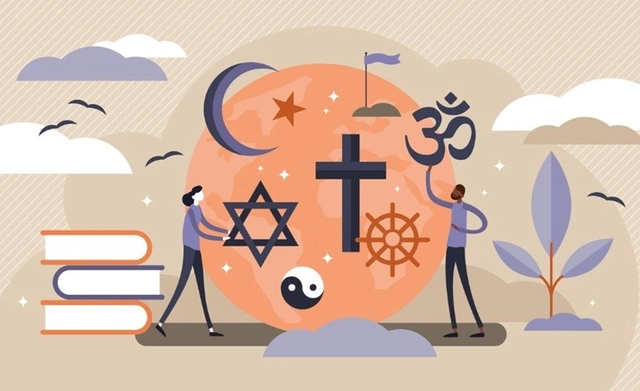Cohorts
Join the waitlist for our next cohort.
Sign up to be the first to know when we launch the next cohort.
Science and Religion: Climate, Ecological, and Social Crises
The course will explore how worldviews, spirituality, and religious traditions shape public engagement with science and environmental issues. It will also examine the interface between science and public policy, and consider how we might move from climate apathy toward climate care.

Week by week curriculum
Week 1
Themes: Overview of the climate, ecological, and social crises. Definitions of ""science,"" ""religion,"" and ""worldview"". How different traditions define nature, knowledge, and responsibility. Readings: Lynn White Jr., The Historical Roots of Our Ecologic Crisis, Thomas Berry, The Great Work (selections), IPCC Report Summary for Policymakers (excerpt), Tao Te Ching, Ch. 8, 29, 39 (on harmony with nature) Activity: Mapping your worldview: What do you believe about nature, humanity, and knowledge?
Week 2
Themes: Stewardship and dominion in the Abrahamic tradition. Interdependence and non-harm in Buddhist environmental thought. Colonialism, religion, and the shaping of ecological values. Readings: Pope Francis, Laudato Si’ (selections), Robin Wall Kimmerer, Braiding Sweetgrass (excerpts), Thich Nhat Hanh, The World We Have: A Buddhist Approach to Peace and Ecology (chapters 1–3), Peter Harrison, “Subduing the Earth
Week 3
Themes: Why people reject or resist climate science. Scientific authority and religious skepticism. Karma, cause and effect, and ethical action across time. Readings: Naomi Oreskes & Erik Conway, Merchants of Doubt (selections), Katharine Hayhoe, Saving Us (selections), Daisaku Ikeda, “A Buddhist Approach to Global Peace and Ecology”, Bhagavad Gita, Ch. 3 (on selfless action and duty) Activity: Case study: Compare messaging about climate action in a Christian church, a Buddhist sangha, and a secular NGO
Week 4
Themes: How ritual shapes ecological consciousness. Nature as sacred: animism, Hindu cosmology, Shinto, Indigenous practice. Storytelling and aesthetic experience as climate pedagogy. Readings: Selections from The Rig Veda (Creation Hymn, Earth Hymn), Shinto text: Ofuda and Sacred Space (short excerpts), Joanna Macy, Active Hope (selections). Visual case study: Hindu ecological festivals, Buddhist tree ordination, or Japanese forest bathing Activity: Design a ritual or art-based act of ecological reverence using multi-religious inspiration
Week 5
Themes: The role of religious and spiritual communities in climate activism. Faith-based approaches to environmental justice. Interfaith alliances and indigenous leadership. Readings: GreenFaith, “Beliefs and Actions for Climate Justice”, Faith for Earth Initiative (UNEP) – policy brief, Buddhist Declaration on Climate Change (2009), Indigenous Peoples’ Statement to the UN (excerpts) Activity: Simulation: An interfaith environmental summit advising a local government on climate resilience
Week 6
Themes: Spiritual responses to grief and eco-anxiety. Practices of mindfulness, compassion, and active hope. Constructing new ecological worldviews Readings: Audre Lorde, “The Uses of Anger”, Aldo Leopold, A Sand County Almanac (selections), Eihei Dōgen, Instructions to the Cook (on mindful stewardship), Student-selected text for final reflection Activity: Final presentations: Students present a creative or research-based project proposing a response to ecological crisis through an integrative lens of science, religion, and ethical care.
